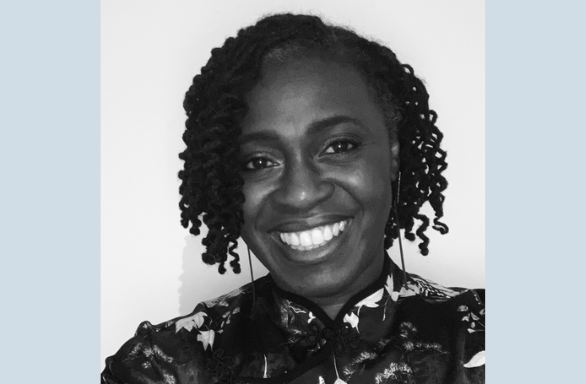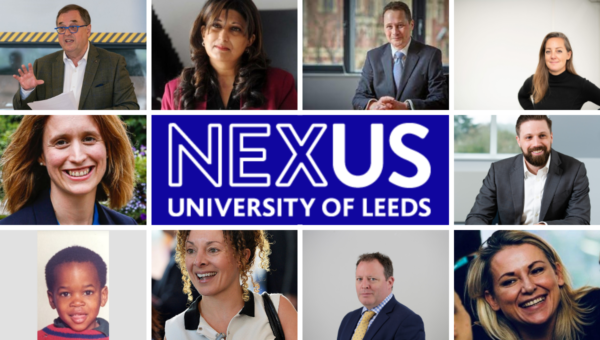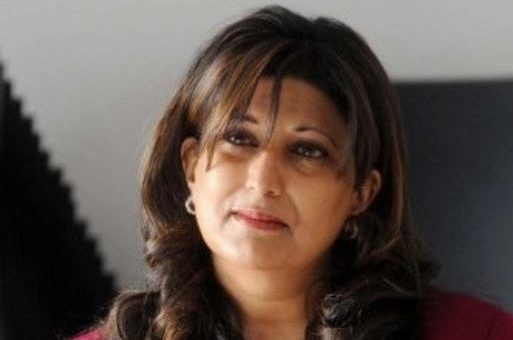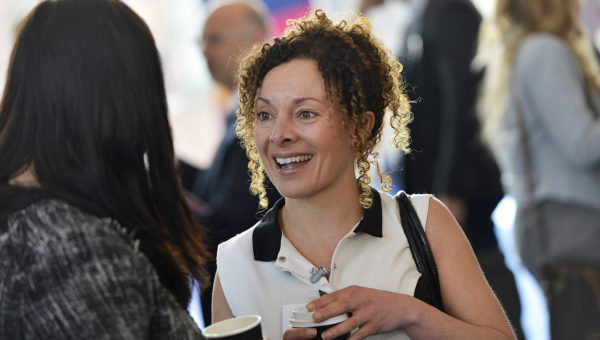The View from Here – Annette Joseph MBE

In this series we ask key figures in the region and from our core sectors to share their insights.
We spoke to Annette Joseph MBE, Founder of Diverse & Equal, Speaker and Agile Coach, about the key challenges and opportunities she sees in creating a truly inclusive culture and what our region is doing to make progress.
Tell us about your aspirations for Diverse & Equal in Leeds
I’m a problem-solver at heart. I want to fix things. And that means advocating a new narrative and follow-through actions where organisations focus on the tangible business benefits of diversity instead of tick-boxing. For people of colour, the new narrative here is around opportunities for lucrative, fulfilling careers in the industry.
We often hear: “I haven’t got a degree in computer science” or “I’m no good at maths” — there are so many roles in the industry where transferable skills such as stakeholder management, planning, problem solving can be applied. It’s not just about coding. We’ve been able to help many people into new careers in digital – as researchers, business analysts and service designers.
We typically work with adults who have experience in non-digital roles. The skill sets they’ve acquired in their industries mean that they have an incredible amount of value to offer. We provide them with a new set of tools, a new mind-set and a new way of working. Many of our graduates have gone from knowing nothing about tech/digital to mid-level roles in 6-9 months.
There is so much latent talent sitting in uninspired roles. I want Leeds City Region to be a place full of innovative, digitally-enabled businesses, where every citizen has equal opportunity to fulfil their potential. What we do in tech can be replicated in finance, law and many other sectors.
You recently launched a report – Racial Diversity in Digital – Leeds. What were the key findings and recommendations?
Conducting the research was an incredibly emotionally-taxing experience for the whole team. It was painful to hear the experiences of people of colour: being singled out; told they’re not good enough; over performing but receiving no credit; being afraid to raise issues for fear of detrimental escalation after being accused of “playing the race card”.
Racial equality in the workplace is a complex problem with intersecting threads of cause and effect, but fixing it doesn’t have to be complicated – creating a truly inclusive culture means consistent, incremental progress – starting today.
Among the nine recommendations in our report is one calling for a new narrative around racism: it is not about good people vs. bad people. Being addressed about doing something racist is not an attack on character or personality — it’s an opportunity for growth, just like any other constructive criticism. Racism should be measured in outcomes, not feelings. In order for things to change, we should measure the actions or systems that result in more negative outcomes for people based on their ethnic background – and work together to change them. What we’re really talking about is fairness — people receiving equal treatment based on performance not perception. Our focus on ethnicity is because it’s the only special characteristic that cross-sections all other special characteristics — if we fix inequality for ethnicity, we fix it across the board for everyone.
How can businesses help to meet those objectives?
We’re working together with Leeds City Council to pull together a consortium of businesses in the region, to commit to fixing the problem.
We’ve proposed an ongoing series of discoveries to design practical solutions and work out how they can be implemented in different types and sizes of organisation.
We’ll work with the consortium to build incrementally – testing, gathering feedback – then building bigger with the feedback built in.
Consortium members will be at the forefront of lasting change. We’ve been having this conversation for decades — this initiative presents an opportunity to spearhead vital momentum for continuous growth.
How can communities such as Nexus help to meet those objectives?
We are extremely grateful to Nexus and our other sponsors for their support for our research. The Nexus community and its wider networks can play an invaluable role in continuing the conversation, changing the narrative and facilitating real change.
We know it can’t happen overnight, but nothing ever changes if it’s not discussed and it’s vital that our report does not sit on a shelf – tick box, work done – but is seen as a new beginning where fairness and excellence are the norm.
You’re a strong advocate of agile teams as a key driver for diversity and inclusion in the workplace – how does this work?
There are numerous studies demonstrating that diverse teams are more profitable, more innovative and more productive. Inclusion though is the key. Agile teams work very differently to more traditional workplace cultures. It’s all about who you are at the core and what your talent and experiences can contribute – people are encouraged to be their full selves and achieve fulfilment and reward from their work.
I’d encourage anyone from an under-represented background who is interested in a career change to join one of our taster sessions – to find out if a career in digital is for you. The sessions are friendly, supportive and you don’t need to have any prior experience in tech/digital.
For organisations ready for real, lasting change, talk to us about joining the consortium. We’re looking for funding right now and plan to have different levels of involvement to make it accessible for organisations of all sizes. We’ll also be posting and blogging about our work so follow us on LinkedIn or keep an eye on our website to stay up-to-date.
Find out more about Annette, connect with her on LinkedIn or follow her on Twitter.
Explore more insights from our ‘the view from here’ series:
Latest news

The view from here – a look back at 2021
Take a look back at some brilliant insights from another eventful year, as we remind you of some of the thoughts, hopes and aspirations for the future from some of our distinguished commentators.
Read article
The view from here – Sharon Jandu, Yorkshire Asian Business Association
We catch up with Sharon, Founder of the Yorkshire Asian Business Association (YABA) and Project Director of Northern Asian Power (NAP), about her vision for a flourishing regional economy and the major opportunities she sees for international trade.
Read article
The View from Here – Sir Roger Marsh OBE DL
We spoke to Sir Roger, Chair of Leeds City Region Enterprise Partnership and NP11 group of Northern LEPs, about the current climate for business and aspirations for future growth.
Read article
The view from here – Melanie Ellyard, British Business Bank
We chat to Melanie, Senior Manager for Yorkshire, Humber and Tees Valley, UK Network for the British Business Bank about the current funding landscape for business in our region and what she sees should be our key priorities for future growth.
Read article